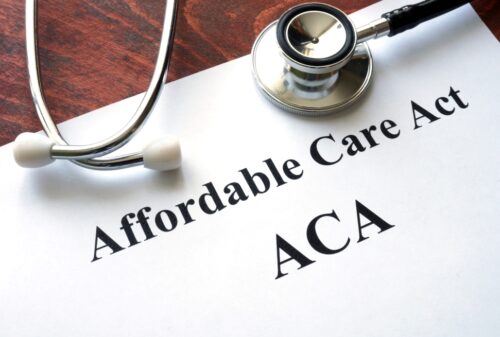Article • Dean Baker’s Beat the Press
The New York Times Doesn’t Know About the Affordable Care Act

Article • Dean Baker’s Beat the Press
Fact-based, data-driven research and analysis to advance democratic debate on vital issues shaping people’s lives.
Center for Economic and Policy Research
1611 Connecticut Ave. NW
Suite 400
Washington, DC 20009
Tel: 202-293-5380
Fax: 202-588-1356
https://cepr.net
That is the only possible conclusion from this NYT column on the difficulty that people in the restaurant industry face getting health care insurance. The piece literally does not mention the Affordable Care Act (ACA) once either directly or indirectly. For example, a serious discussion would have noted the substantial subsidies that are available to moderate-income workers buying insurance in the exchanges and the massive expansion of Medicaid so that it now directly provides free insurance to more than 70 million people.
Perhaps even worse, the piece discusses the problem of coverage for workers with pre-existing health conditions as though the protections in the ACA did not exist. The ACA explicitly prohibits insurers from discriminating against people with pre-existing conditions.
The ACA was passed more than 14 years ago. Perhaps we can excuse a restaurant owner for not knowing much about it (although if he is actually concerned about his workers getting health insurance he certainly should), but certainly the New York Times opinion page editors should know about the ACA.
It is hard to understand how the NYT could run this column, which is a fountain of misinformation on access to health care insurance. Opinion columns are supposed to present a diverse range of views, but they should work from a common set of facts. This one invents its own and seriously misleads readers on one of the major issues facing the country.
According to opinion polls, many Trump voters turned away from the Democrats because they did not see them as having done anything for them. Passing the ACA and extending coverage under the Biden-Harris administration was actually a very big thing. Unfortunately, readers of the New York Times might know nothing about this accomplishment because the paper runs columns implying that the ACA does not exist.
Unfortunately, this is not the only instance where the paper has effectively denied the existence of a major Biden initiative. The Biden Administration made the income-driven student loan repayment plan far more generous. Under his plan, students who make less than one and half times the federal poverty level would pay nothing. They would pay only 8 percent of their income above this level.
This means that a single person earning $34,000 a year would pay nothing, while a person earning $50,000 a year would pay around $140 a month. For people enrolled in the plan, the outstanding balance would never go up, even if their payments did not cover the accrued interest. Depending on the amount borrowed, loans could be forgiven in as little as ten years in the program and in any case not more than 20 years. This program should have put an end to stories of former students facing crushing debt burdens. (The plan is now under review by the court, and may be blocked, but this legal action was only taken last summer.)
Incredibly, the New York Times ran a number of pieces implying that Biden’s plan never existed. For example, in April it ran a lengthy article complaining that young people that wanted to be priests or nuns would be unable to do so because of the burden of student debt. The article never mentioned that the Biden administration’s income-driven repayment plan should put an end to this problem.
This was not the only time the paper ignored Biden’s plan. In March it ran a column proposing free journalism school as a way to make a career in journalism affordable to more people. This column also ignored Biden’s plan.
In January it had another lengthy piece arguing that for many people, college was not a very good financial deal because of the large debt burden it could leave them with. This piece also failed to mention Biden’s income-driven repayment plan.
It’s clear that the Biden-Harris administration failed to inform the public adequately about many of its accomplishments. However, news accounts that effectively lied to their audience on key policies were not helpful. And seeing this in the nation’s leading newspaper is especially discouraging.